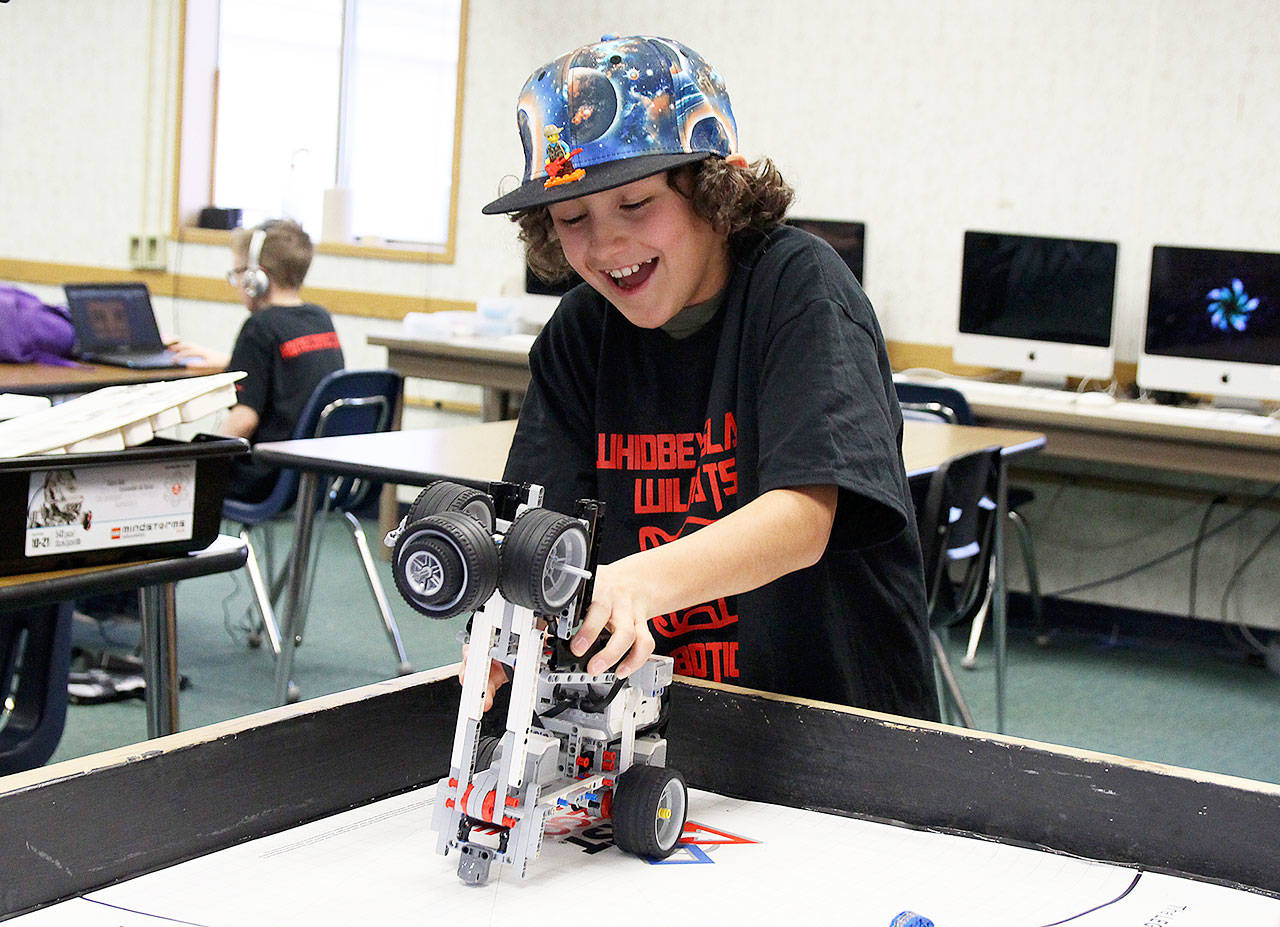These kids spend hours playing with Legos, but they aren’t building the typical houses or spaceships. Their creation comes to life to complete as many missions as possible for the FIRST Lego League.
The kids’ team, Home Connection Phoenix 35465, also happens to be one of the best in the region.
Only in its second year in existence, the team is Whidbey Island’s first to qualify for the state competition.
Out of 583 teams that competed in the semifinals, Home Connection became one of only 32 advancing to the championships Feb. 10 in Kent.
“I think it’s so exciting,” said Addie Nigro. “After semifinals, I was really, really tired, but I was still too excited to fall asleep the next night.”
The team of 10 to 12 year olds created a Lego robot that they use to complete as many “missions” as possible on a tabletop landscape full of optional tasks that are each assigned a different point value.
In preparation for the completions, the team decides how to maximize points programming the robot to do whichever tasks the children feel they have a good chance of completing successfully in two and a half minutes.
The group is also judged by its ability to work together, sportsmanship, professionalism and other “core values.”
And, finally, each year the teams are tasked with finding a problem and solution following different themes. This year’s theme revolved around space travel.
Team Phoenix decided to focus on the isolation astronauts can feel when spending long periods of time away from their home planet.
The kids, with the guidance of their Oak Harbor High school mentors Logan Ince and Thomas Carman, designed a virtual reality headset that would also replicate senses experienced in different environments on earth.
The idea is for astronauts to wear the headset while using the treadmill to simulate walking in a familiar park or a famous landmark, while actually being able to smell pine trees and flowers, said Kristin Stephens, one of the coaches.
The team is currently in the process of submitted a patent application for the design, she said.
The team is funded by the Whidbey Island Wildcats Robotics Club Booster Club, which provides funding for a number of clubs.
A number of regional businesses also sponsor Phoenix.
The money provides the kids to engage in a number of activities that meet the goal of the FIRST League, which stands for “For Inspiration and Recognition of Science and Technology.”
Gideon Odeneal said these kinds of opportunities are what he likes most about being on the team. The kids got to visit the Wings Over Washington flying theater; meet with state legislators and advocate for opportunities in science, technology, engineering and math; bounce ideas off Oak Harbor’s resident former astronaut Heide Stefanyshyn-Piper and learn about Woodland Park Zoo’s ideas for virtual reality experiences.
But the team didn’t qualify for state without a lot of hard work.
Phoenix meets in a modular classroom at Home Connection four nights a week for about two and half hours each time.
Sometimes, the kids came in after school and stayed for five or six hours to complete projects before competitions, Stephens said.
Ince said the team’s success is rooted in the the children’s hard work, his and Carmen’s experience and the parent’s willingness to let them stay late “and eat pizza probably more often than they should.”
The coaches and mentors all said they strongly felt all the work should be done by the kids so they each learn as much as possible. Each member gets an opportunity to program and complete a mission all by themselves, and the goal is to ensure each child gets equal time with the robot.
Stephens said she and the other coach, Angela Dolph, take a hands-off approach with the group.
“They may not have as fancy of a robot as some of the teams,” Stephens said. “But it’s 100 percent the kids’ work.”




